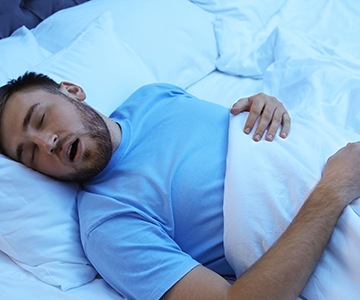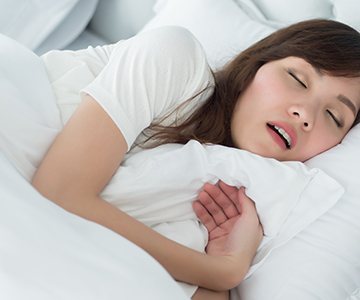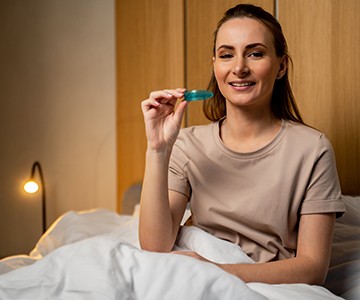Sleep Apnea & Snoring—The Woodlands, TX
Quieter Nights for Better Mornings

Despite what people say, absolutely everyone snores from time to time. However, if you snore so much and so loudly that it has been pointed out to you, then it might be something you shouldn’t brush off.
Often (but not always), snoring is a telltale sign of sleep apnea, a disorder that can lead to chronic exhaustion while also drastically increasing your risk of severe overall health conditions (including heart disease and diabetes).
Dr. Robert Dernick has helped countless patients not only stop snoring, but also start getting the quality rest they need. It’s a win-win for everyone, and you can get this solution for yourself just by scheduling a consultation today.
What’s the Problem with Snoring?

Snoring occurs when the upper airway becomes partially obstructed. This causes the tissues in the mouth and throat to vibrate as the air rushes by, which is what creates the “iconic” sound.
The most well-known issue stemming from snoring is that it can disrupt the sleep of someone’s bed partner and family, leading to chronic sleep deprivation. Along with making everyone extremely grumpy, a lack of sleep over a long period of time is strongly associated with a wide variety of mental and physical health conditions.
But snoring may also indicate that a person is not breathing properly at night. Sleep apnea involves short periods of interrupted breathing, and the precursor to this is snoring. This is most obvious when a person snores loudly, and then there is a little pause before a slight gasp or snort that restarts the cycle.
If I Snore, Do I Have Sleep Apnea?

Not always. While snoring is one of the most common symptoms of sleep apnea, it is not an automatic indicator.
A person who snores should only worry about sleep apnea if they experience other symptoms like always feeling tired no matter how much they sleep, morning headaches/sore throats, brain fog/irritability, or waking up in the middle of the night sweating or feeling out of breath.
How We Can Help Stop Snoring

If we see someone who snores but otherwise gets great sleep, we can provide them with a custom-made oral appliance to wear to bed. This will help keep their airway open and clear, preventing snoring from happening.
But if we believe that a patient might have sleep apnea, we can have them undergo a sleep test, and based on the findings, an oral appliance might be used as well. For this situation, the appliance moves the lower jaw slightly forward to avoid stoppages in breathing. A pleasant side effect of this is that it blocks snoring at the same time!
 Sleep Apnea &
Sleep Apnea &